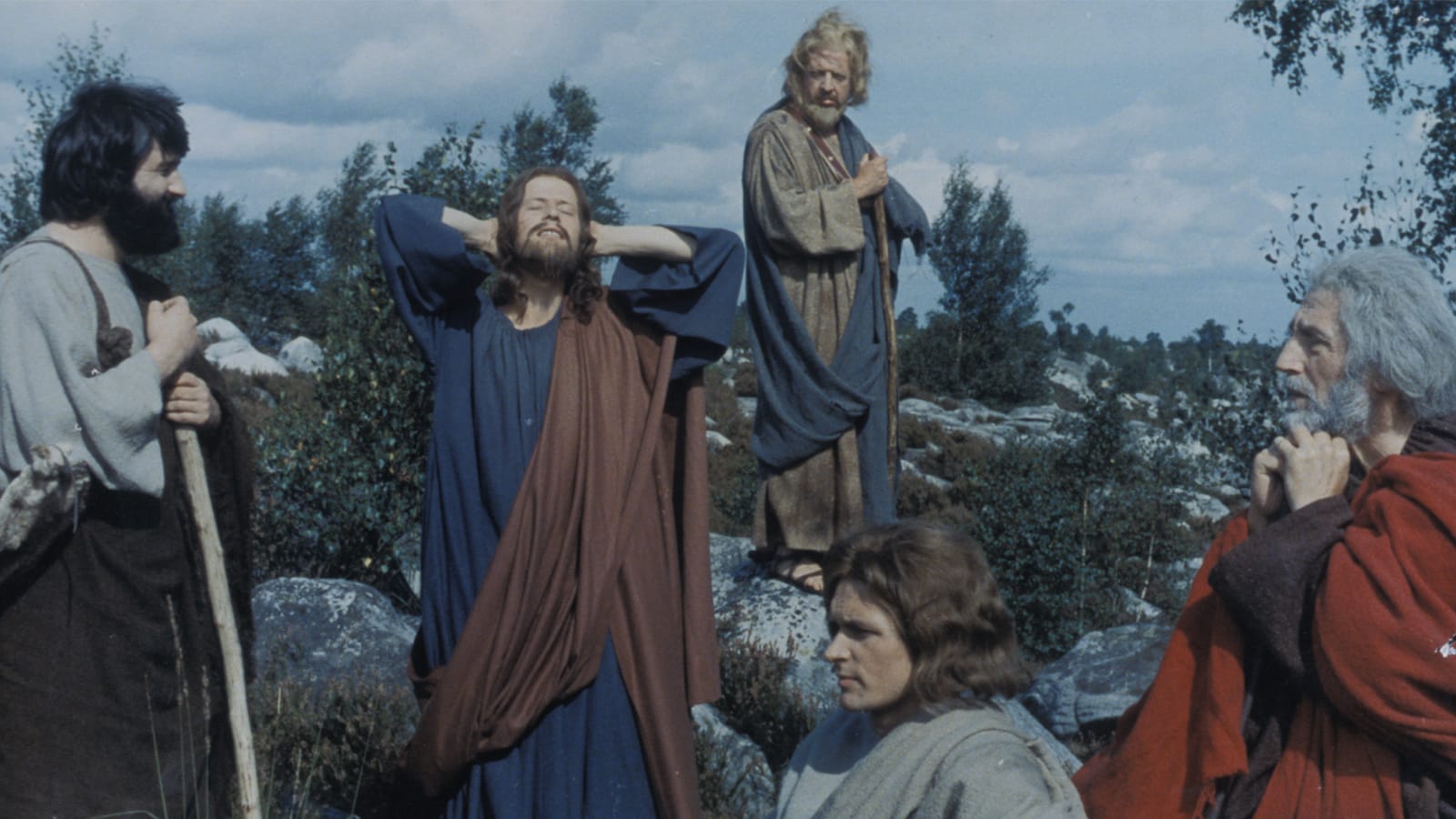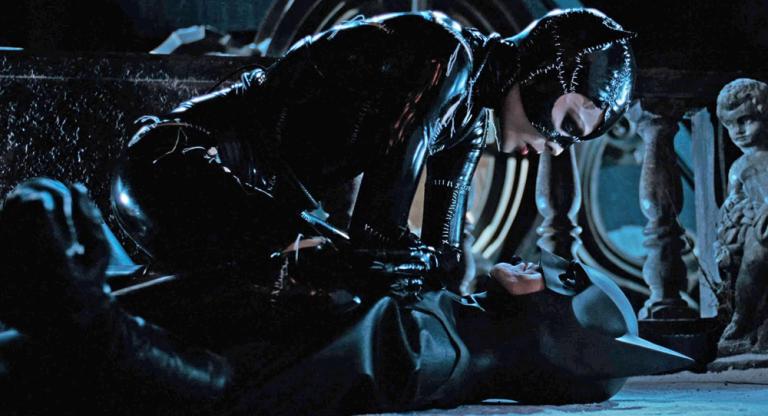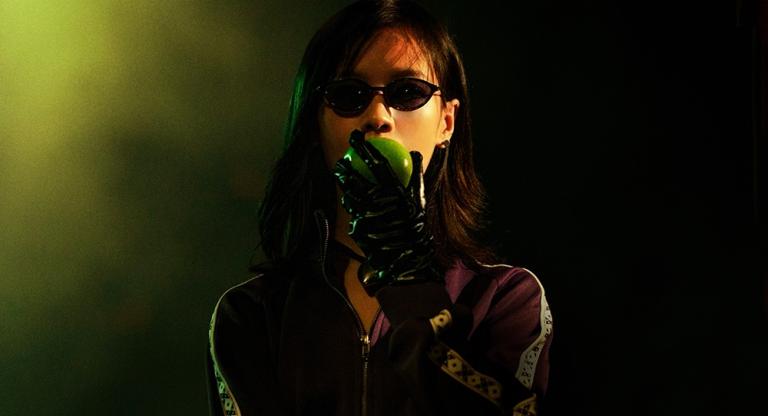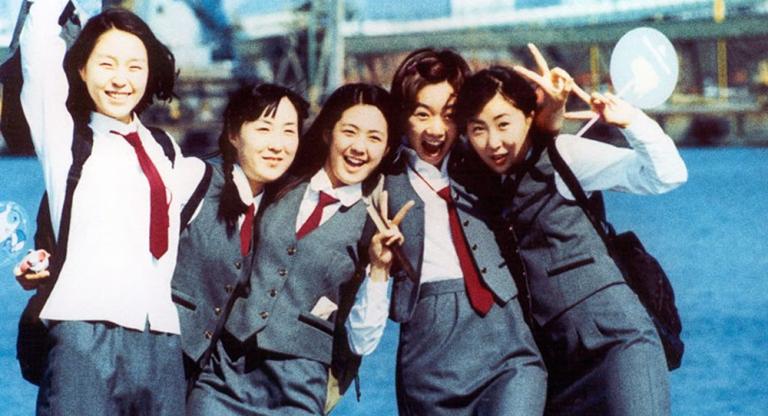Luis Buñuel’s films referenced Catholic iconography as readily as they debased it. These two impulses are at the forefront of The Milky Way (1969), one of two films by the director—the other being Nazarin (1959)—which went beyond an immediate critique of Catholic institutions and doctrine to comment on the unreliability of faith as both a moral compass and a relief from social problems. The film follows two vagabonds as they embark on a spiritual pilgrimage from Paris to the Galician city of Santiago de Compostela, a traditional route taken by Catholic pilgrims to this day. The older of the two, Pierre (Paul Frankeur), is a devout Catholic while the younger one, Jean (Laurent Terzieff), is more ambivalent about his spiritual convictions. In Buñuel’s hands, their pilgrimage quickly becomes a series of absurdist sketches riffing off two-thousand years of Christian history; The Milky Way is an episodic riddle that explores the contradictions of religion and probes the limitations of faith itself.
The film forgoes the streamlined plots of Buñuel’s previous films by embracing an episodic structure, which he further refined with Discreet Charm of the Bourgeois (1972) and The Phantom of Liberty (1974). This structure allows Buñuel to diversify his thematic observations through narrative proliferation. Religious conversations abound throughout the film, with scenes that are thematically linked in their contemplation of heresy and sacrilege. Such scenes include a chauffeur who is so indignant that the lord's name is taken in vain that he refuses to transport his passengers, a priest and a policeman debating over the exact moment when transubstantiation occurs during the eucharist, and a jesuit and a jansenist dueling one another over their conflicting interpretations of self-determination. In each case, immediate real-life concerns interrupt any definitive understanding of religious doctrine and as a result, Pierre and Jean’s requests for food and lodging are constantly brushed aside by the people they encounter on their pilgrimage.
Buñuel’s penchant for subverting Christian iconography still finds aggressive manifestations in The Milky Way, as in a scene in which Jean fantasizes about anarchist rebels executing the Pope via firing squad, but the film is more emblematic of his maturity as an older director. Most of his subversive commentary in the film takes on an understated quality that is nonetheless daring in its critique of Catholic tradition. This is clear in its rendition of Christ, who Buñuel makes a distinct effort to alienate from traditional Catholic iconography. His version of Jesus is introduced while he is contemplating whether or not to shave his beard. He is late to the wedding at Cana, laughs at his own jokes, and pauses his sermons to drink wine. This is not the Christ shown in stained glass murals as a stone-faced celestial visitor, but a man who finds life amusing. Buñuel’s characters—be they nonbelievers, religiously orthodox, or heretics—are each, in their own way, equally dogmatic about their religious convictions and their spiritual concerns blind them to the suffering around them. Christ’s humanist teachings have also been lost to centuries of worship and doctrinal debate that are more concerned with miracles and the promise of eternal salvation than helping those in need. Buñuel crystalizes his skepticism around revelations that result from fanaticism in the The Milky Way’s final sequence, in which a miracle occurs but its recipients remain functionally unchanged. Religion, he surmises, provides immediate satisfactions in life, but offers no relief from existential quandaries.
The Milky Way screens this afternoon, April 7, at Metrograph on 35mm as part of the series “Divine Intervention.”



